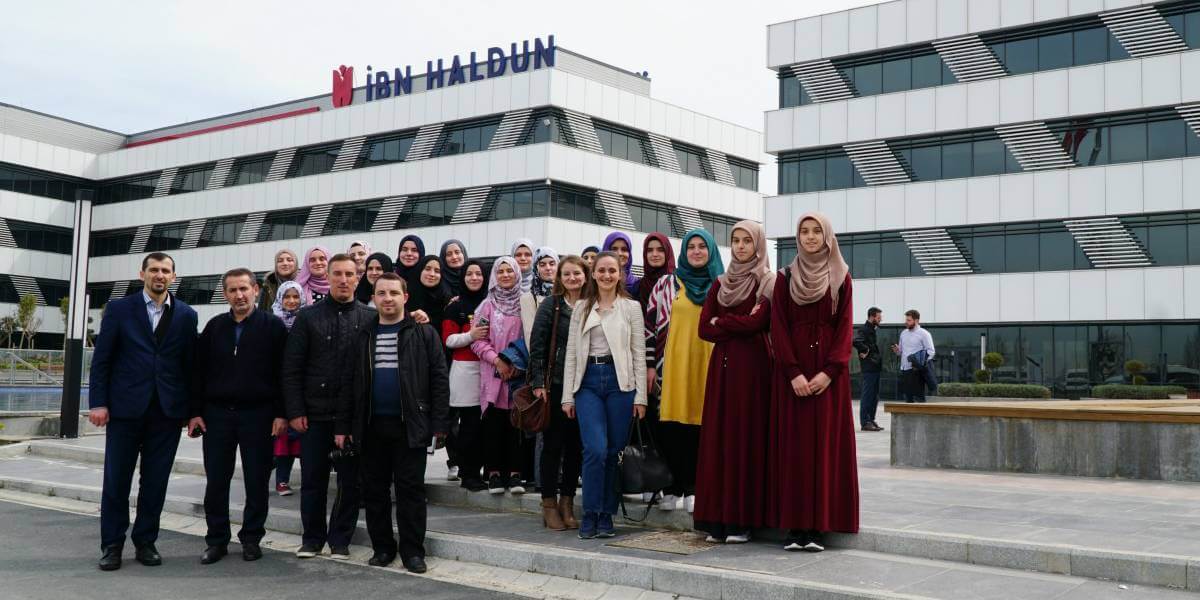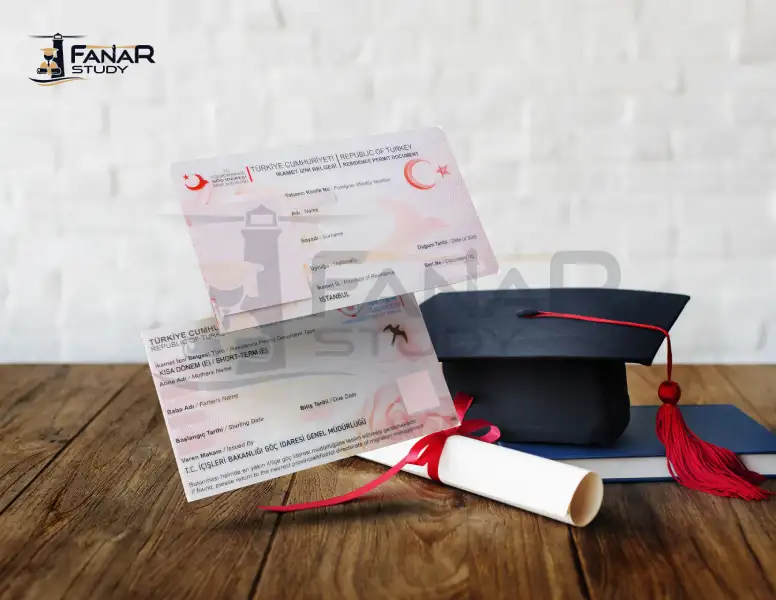Study before university in Turkey consists of three different stages, and each stage has a specific number of years that the student spends studying until he finishes his studies before joining the university. Education is mandatory in Turkey and from the age of 6 to 14 years, the state obliges the student’s families to enroll their son in Turkish schools. Turkish education is completely free Schools open their doors in mid-September or early October and continue until June, knowing that there is a two-week midterm holiday in February, and according to the country's constitution, the education system in Turkey is entirely under the Ministry of National Education.
Kindergarten
It begins at the age of 3 years in Turkey and ends at the age of 5, which is the stage before primary school. Kindergartens in Turkey, the child can begin to build cognitive experiences and life skills because of the activities offered by Turkish kindergartens for children, and the most important thing that this stage gives the child is that it qualifies him for the next school stage.
Many Arab families prefer the involvement of their children in Turkish kindergartens, knowing that there are many Arab kindergartens in Turkey, but this helps the child to learn Turkish faster and makes him engage in Turkish society better. Therefore, the Arab community prefers the Turkish kindergarten.
Primary education is one of the stages of study before university in Turkey
It starts from the age of 6 years and ends at the age of 14 years and continues for eight years and is divided into four primary years and four intermediate years. The primary stage includes grades from first to fourth, middle grades, fifth, sixth, seventh and eighth grades. in Turkish schools. For Arab students, the choice is not the same as kindergarten. The student must enroll in public or private Turkish schools. Arab families show more interest in government schools, because the material cost is very simple and almost negligible, and also for the efficiency of government schools in education and education, and for Arab students wishing to enroll in public schools Turkish prepare some papers
- The child’s birth certificate is stamped by the foreign country of his country, and it is also sealed by the notary (the notary is the notary’s office that every immigrant, immigrant, or resident in Turkey must visit and deal with)
- Passports of the child's family and his passport as well.
- Residency of the child’s family or proof that the child resides in Turkey and holds a Turkish residency.
- Proof of housing and rental contract .
- If the student wishes to enroll in later years, such as that he wishes to enroll in the fourth grade in Turkey, he must bring a document from his country proving that he has passed the stages before the fourth grade .
Intermediate / middle school
As previously mentioned, Turkish preparatory education is part of primary education and its stage is four years (from fifth grade to eighth grade) and this stage is optional, that is, the student can study in general preparatory or imams and preachers preparatory, which is the preparatory school that is concerned with teaching the student Islamic law and the preparatory/intermediate stage It qualifies the student for the secondary stage by supporting the student's preferences and ambitions. At the end of this stage, the student must know that he has become familiar with most of what he needs to study at his secondary stage.
Anatolian Schools: Schools that teach sciences such as physics, chemistry, mathematics, and biology in addition to a language other than Turkish such as English or Russian, and also offer religious education and Islamic curricula. Turkey, before Imam Hatip schools brought together boys and girls in classrooms, Anatolian schools were influenced by the cultures and ideas imposed by Kemal Ataturk's policy.
Imam Hatip Schools: These schools are directed by the General Administration of Religious Education and are affiliated with the Ministry of National Education. Their curricula are Islamic Sharia curricula supported with some of the sciences taught by the students of the Anadolu School. They are analogous to the education of Al-Azhar in Egypt. They were considered vocational schools later. They were considered educational schools supported by the religious curriculum.
The two schools mentioned above have the right for students to enroll in public universities, meaning that a student of Imam Hatip schools can also join the university and study medicine, for example, or engineering, such as the student of the Anatolian School.
According to the observation, it was noted that Arab families desire Imam Hatip schools because, first, they separate boys and girls, and secondly, because they teach students in an atmosphere closer to what is prevalent in Arab countries, meaning that the atmosphere is religious and the teachers are more religious and conservative. They are good at dealing with this type of students and ideology.
It is important to mention that middle schools in Turkey are divided into three levels, and what our Arab community does not know about this matter, and the same applies to Anatolian schools and Imam Hatip schools.
- Poor Student Schools
- Intermediate Student Schools
- Outstanding Student Schools
Weak student schools: It does not mean that they are intended for students who are not completely superior, but rather are suitable for foreign students, as they have to master the Turkish language completely in order to move to intermediate student schools, and the student may spend about a year or two before moving to the intermediate student stage, and this is good, so that It makes the student engage in language techniques successively.
Intermediate student schools: These schools offer more advanced scientific and educational content than the previous ones, and the student can feel the increasing difficulty of the stage he moved to from educating the weak student to educating the average student, and here his language has become more technical than before.
Outstanding Student Schools: These schools are distinguished by the great care provided by the Turkish government to their students. Thus, they are the aspirations of every student in Turkey, as only distinguished and outstanding students belong to them. In a study conducted, these schools were considered to be a source of leaders and distinguished people in Turkey. It is worth noting that these schools remain on the Periodic visits by the country’s leaders, ministers and educational mentors, which makes it the subject of constant attention. These schools send their students to travel and study and make them engage in many scientific adventures around the world, whether in scientific festivals for students or scientific Olympiads. These schools provide their students with laboratories for scientific experiments and galleries for their curricula. The most famous of these schools in Turkey is Galatasaray State School, to which the student is enrolled according to his superior grade point average, knowing that it is a school in Istanbul and its curricula are taught in French.
The secondary stage is one of the stages of study before university in Turkey
This stage also consists of four years, and there may be an additional year for some schools to teach the language in the event that the student’s language technology was not at the required level. It is worth mentioning that most Turkish high schools are free and owned by the Turkish government, and these high schools are divided into several levels
- Public Secondary Schools: It qualifies any student who has completed an 8-year study to enroll and study there, and any student who passes its exams can join the university and complete higher studies.
- Secondary schools: This school differs from the general secondary school with an additional year, as these schools give the student another year to study the language. In these schools, the student studies his curricula and programs in Turkish, with fewer classes for foreign languages.
- Vocational secondary schools: These schools are for students who do not want to join the university. These schools take an additional year in which students can, if they want to enroll, after studying at the Higher Vocational School, and if the student wants to join the university, he must study an institute for a period ranging from two to four years and succeed in it then you can To go to university and study four years in the major you studied at the vocational school. These schools are divided into specializations, including (Agriculture Department - Mechanical Department - Tourism Department - Communications Department - Nursing Department - Commerce Department)
- Anatolian High Schools: The student acceptance rate is approximately 50% of the student population in Turkey. A year of English is taught and then three years of regular education with intensive English language classes are taught. These schools are divided into four systems:
- The scientific section: where students study intensively scientific subjects with literary subjects in a reduced form
- The literary section in which students study literary subjects intensively with scientific subjects in a reduced form
- Scientific and Literary Department: Students study scientific and literary subjects on an equal basis. It is intended for those students who have not decided on some of their university studies yet.
- Languages Department: It is intended for students who want to study languages at the university.
- Science secondary schools: These schools are suitable for students who have good knowledge of science (physics, chemistry, mathematics and biology) and can be considered competitive schools on a local and international level. They establish students to study science at the university, and some of these schools teach their curricula in English.
- High School of Imams and Preachers: These secondary schools are suitable for students who want to complete their religious education and take a religious orientation in their lives and work and aim to create a generation that serves the Islamic religion.
In this article, we have provided you with a useful summary of Turkish education and pre-university study in Turkey, starting with the kindergarten stage and ending with the secondary stage, and with the advantages of every aspect of studying in Turkey, wishing you success in your choices.
We use our own cookies to improve the experience of accessing the information you are looking for. By continuing to use our site, we will assume that you are satisfied with privacy policy
Let Us Contact You
To help you choose your major



